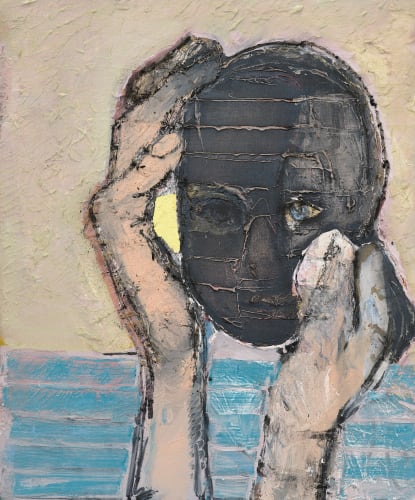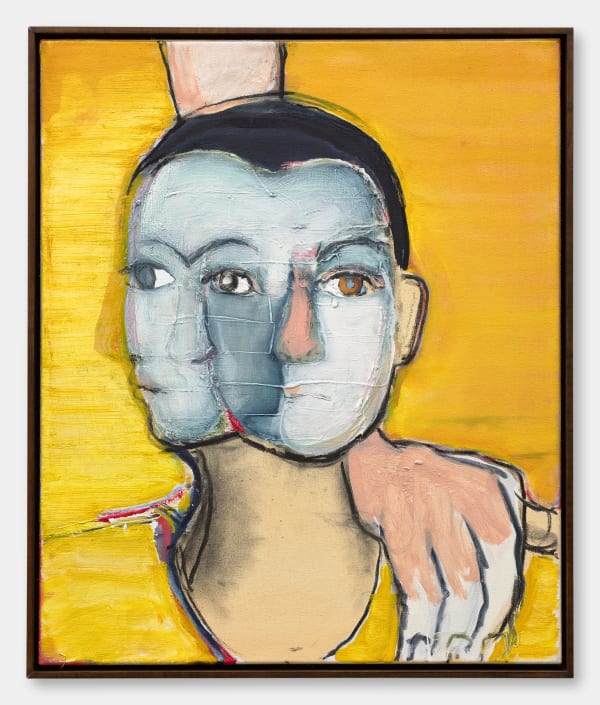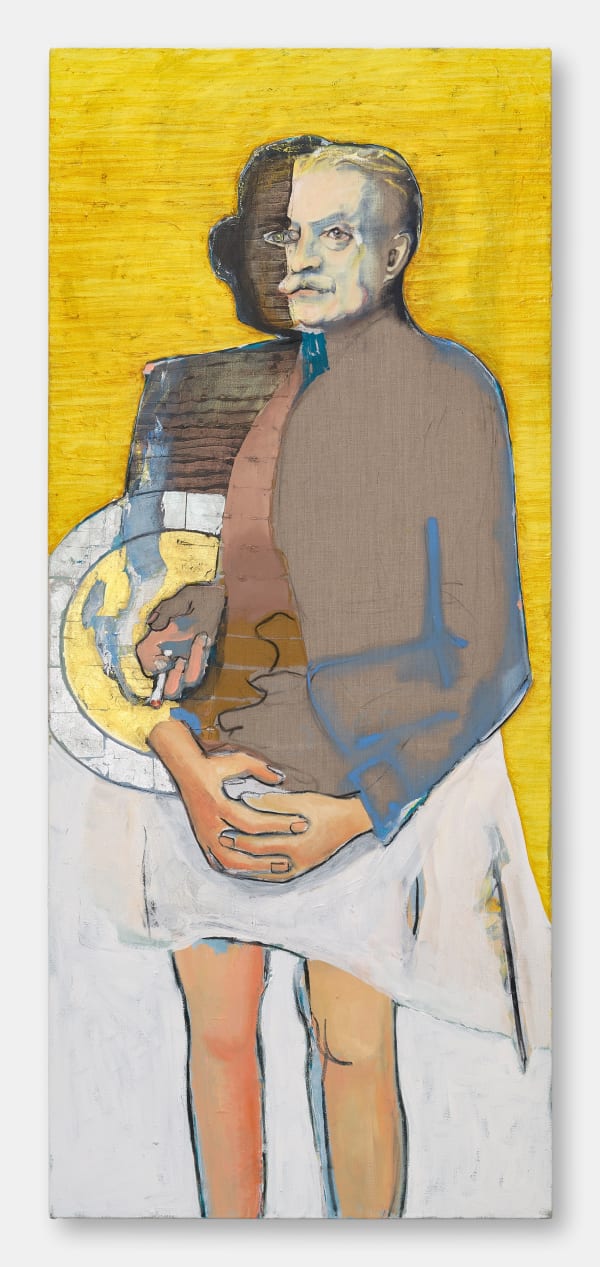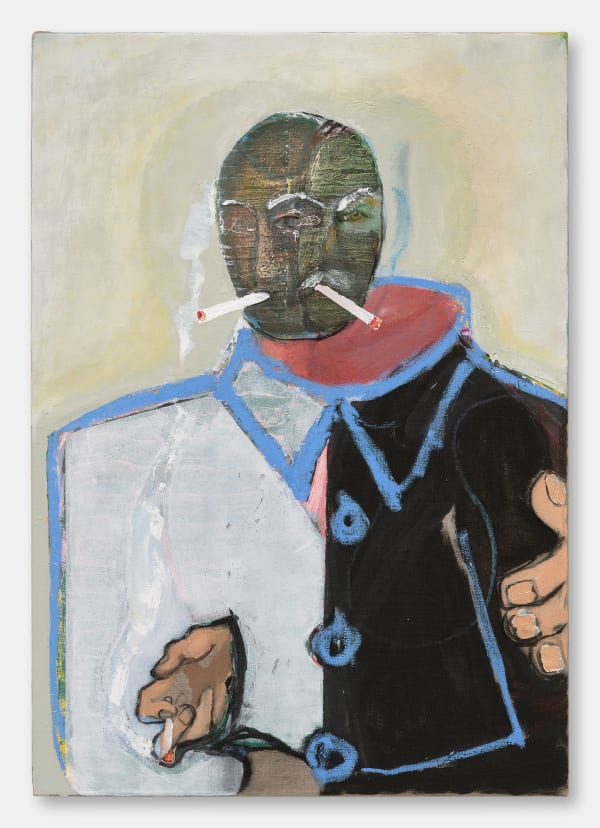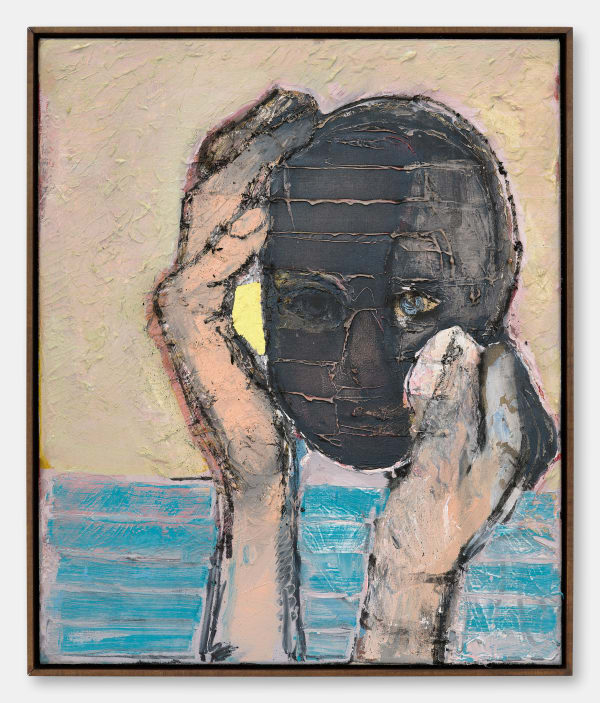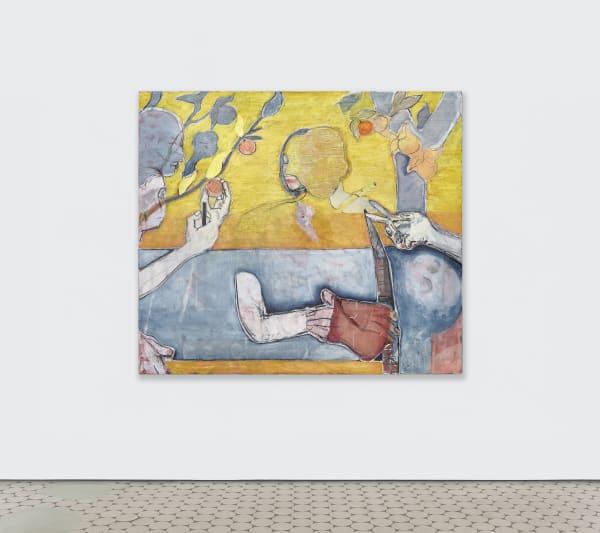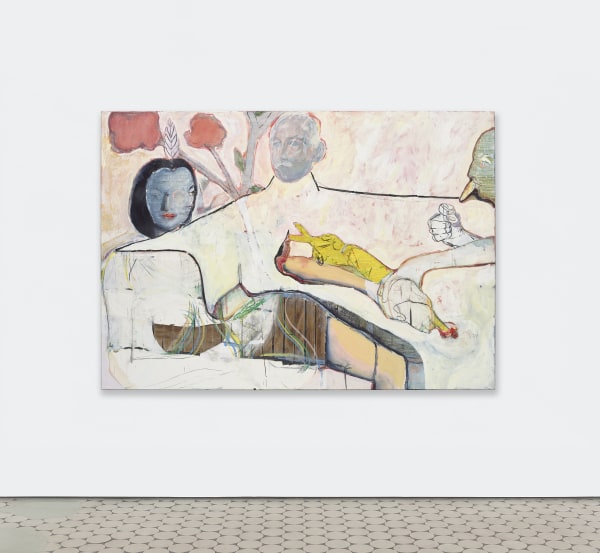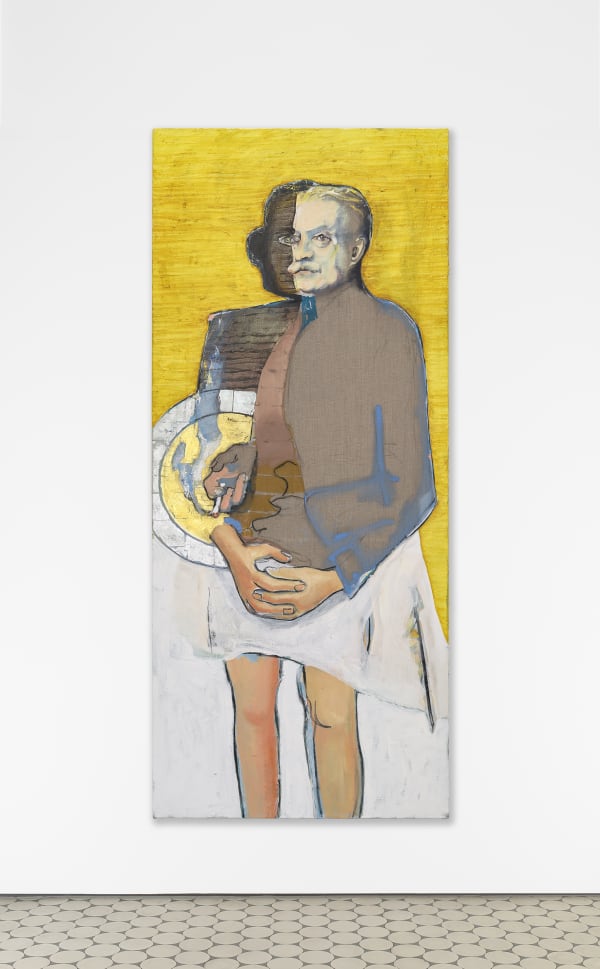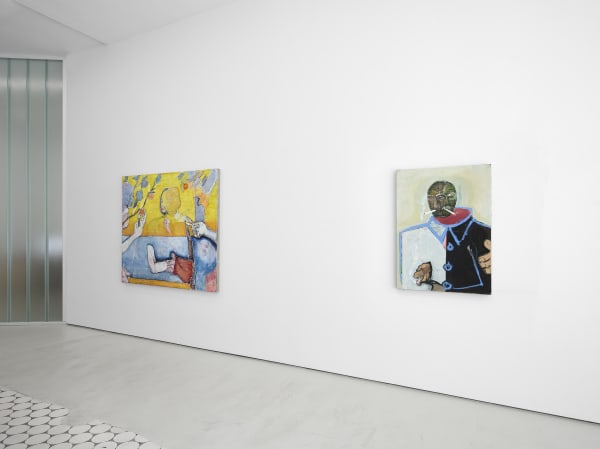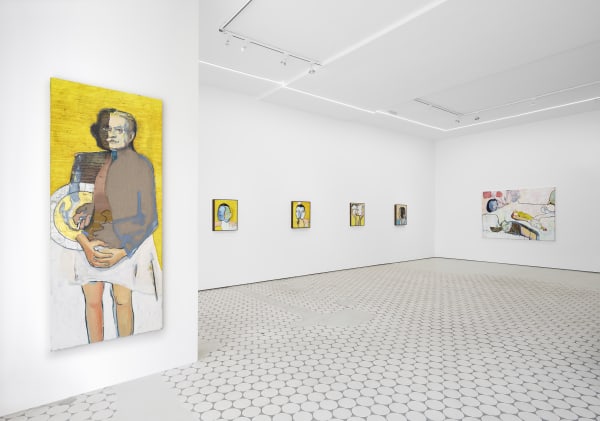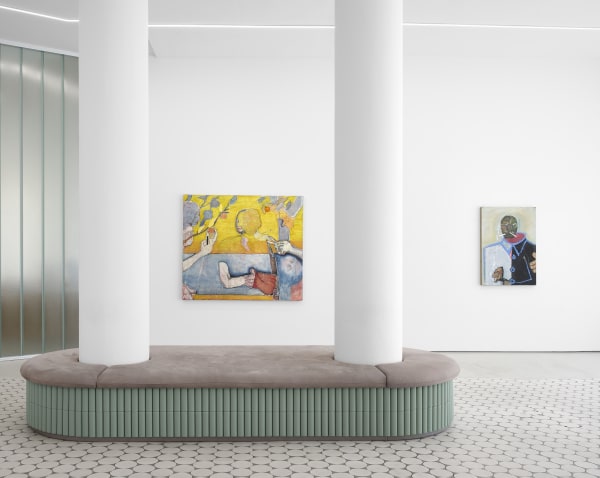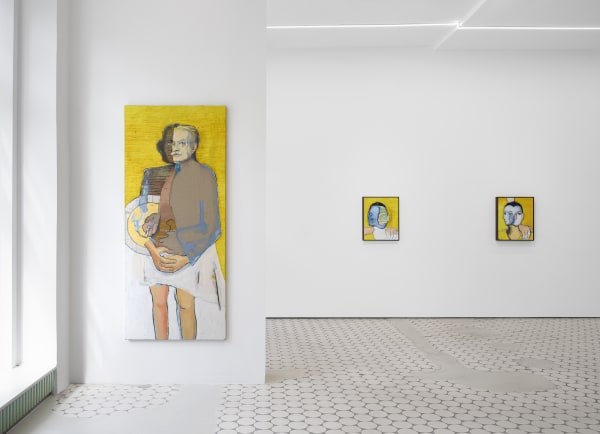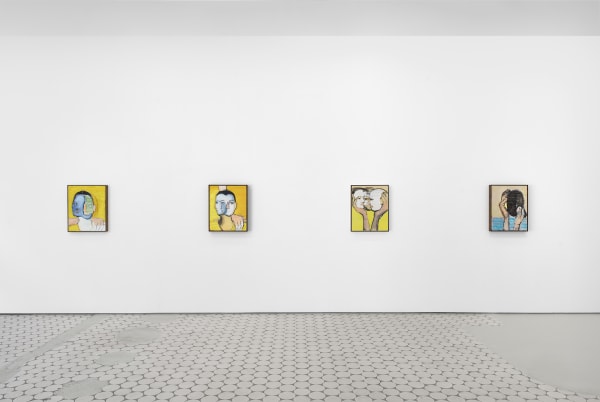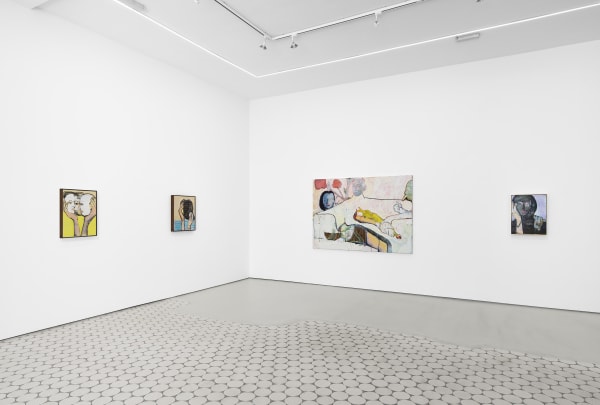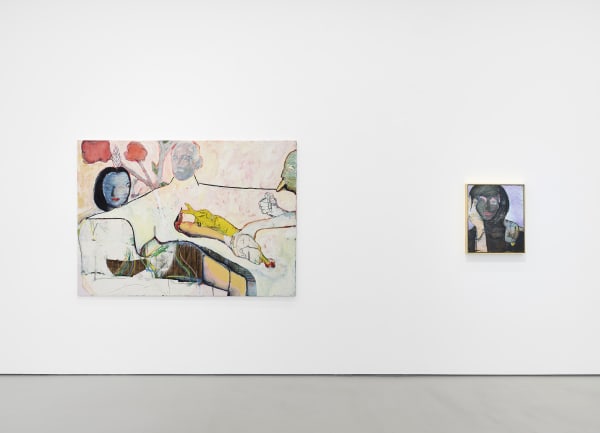Magnus Plessen | Dein Gesicht in meinen Händen
On the occasion of Berlin Art Week 2025, Wentrup is pleased to present Dein Gesicht in meinen Händen (Your face in my hands)
Thoughts from Tina Wentrup on the role of hands and gestures in the work of Pina Bausch and Magnus Plessen
Your Face in My Hands (Magnus Plessen) – Your Arms Around My Body (Pina Bausch)
Hands touch, attempt to hold, only to reach once more into air, into emptiness. The gentle rewriting of an embrace, the suggestion of a gesture suspended between worlds.
In Magnus Plessen’s paintings, protagonists merge, collage-like, caught in intimate moments, yet they often dissolve into vast landscapes. Great-grandfathers and fathers overlap with present family members. Poses indebted to the spirit of their time are revealed as staged, constructed; a hand holding a cigarette in the portrait of his great-grandfather, who never smoked. Within family narratives, what is fact, and what is fiction?
Pina Bausch’s Café Müller presents a scene with empty chairs, where past encounters can be sensed. Dancers sit briefly, only to spring up again, in a continual search to be held, to come close. Trust collides with hollow gestures that never quite fit. Uniting Plessen and Bausch is the fact that both draw from the reservoir of their own past and present to probe the human condition in all its facets - both bring themselves into the space of the stage or the picture. The tender capturing of gestures takes place on canvas in Plessen’s work, on stage in Bausch’s.
In both, bodies remain in flux, in an unending search to evoke emotions that words cannot contain. Precious moments of intimacy, a dance between finding and slipping away. When words fail, whether in pain, loss, or love, it is the hands that return to the fore in Plessen’s work. They hold one another, orthey cut through the picture, exposing layers underneath, which, as in The Act of Painting, may evoke the severing of the thread of life. Holding a cigarette is a recurring motif, which, like the smoke itself, allows the viewer’s own stories and associations to rise and dissipate.
This wandering between worlds, between generations, becomes palpable through formal overlays and fusions — yet always evades concrete determination. Like the shadows cast on chairs in Bausch’s work, shadows gather around and behind the figures in Plessen’s paintings. Historical fragments andtransgenerational traumas are evoked; how deeply one wishes to enter them is up to the viewer.
In psychology, the hand is considered an ‘extended heart’, an immediate expression of inner states;longing (outstretched, searching hands), grief or helplessness (hands hanging down), tenderness (a gentle touch). Both Magnus Plessen and Pina Bausch succeed in penetrating the viewer’s inner depths, laying bare hidden emotions and revealing their constructed self, if only one allows it.
-
 Magnus Plessen, Autumn tears, 2024
Magnus Plessen, Autumn tears, 2024 -
 Magnus Plessen, Köpfe, 2025
Magnus Plessen, Köpfe, 2025 -
 Magnus Plessen, My great grandfather and I with my wife's legs, 2024
Magnus Plessen, My great grandfather and I with my wife's legs, 2024 -
 Magnus Plessen, Smoke, 2023
Magnus Plessen, Smoke, 2023 -
 Magnus Plessen, The act of painting, 2024/25
Magnus Plessen, The act of painting, 2024/25 -
 Magnus Plessen, The golden hour, 2024
Magnus Plessen, The golden hour, 2024 -
 Magnus Plessen, The two of us, 2024
Magnus Plessen, The two of us, 2024 -
 Magnus Plessen, Untitled, 2025
Magnus Plessen, Untitled, 2025 -
 Magnus Plessen, Untitled, 2025
Magnus Plessen, Untitled, 2025
